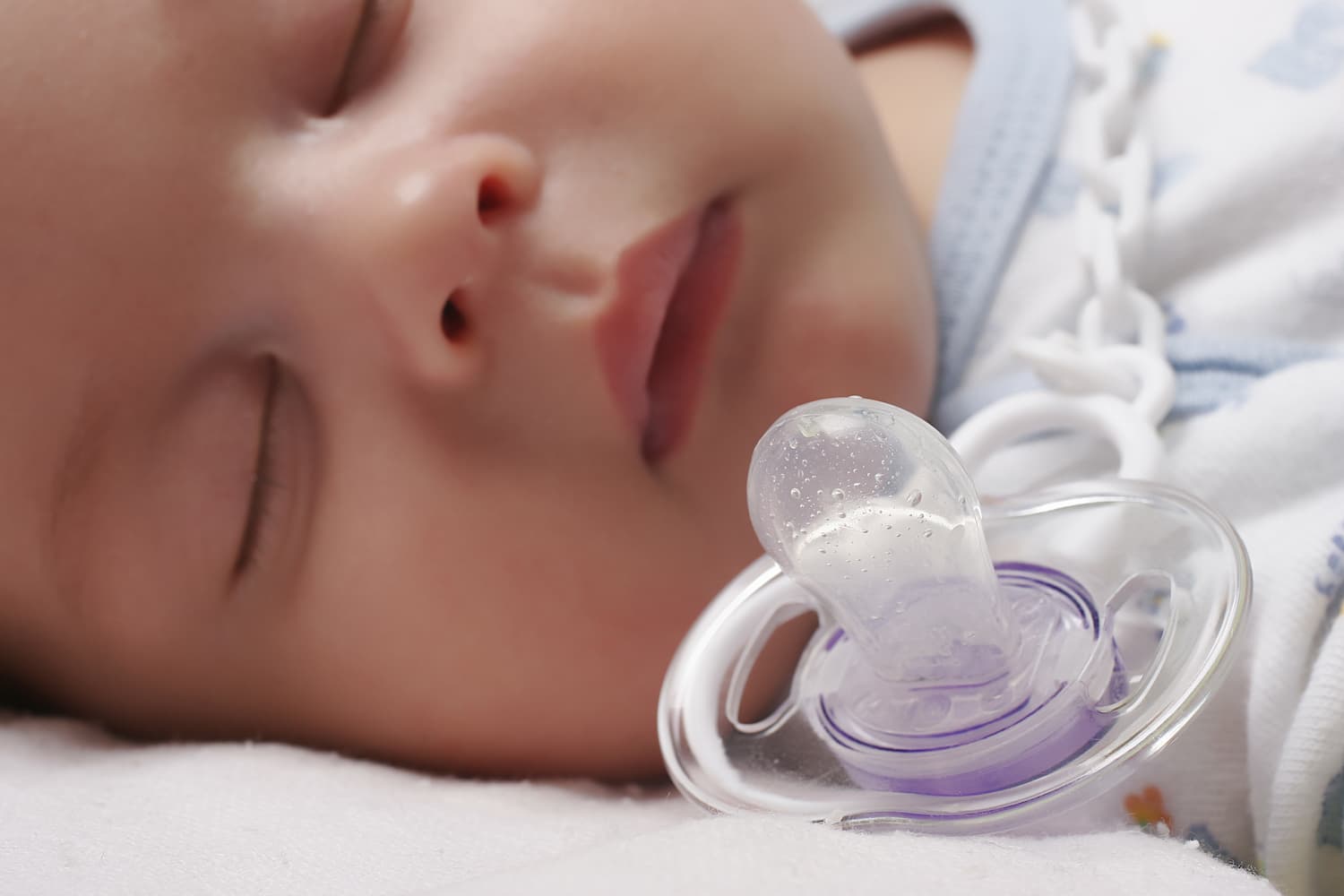Can Babies Sleep With A Dummy
Dummies are convenient to have on hand when your little one needs something to suck on and they can be used for more than just soothing. But when should you introduce a dummy for your baby? Does your baby need one? And how can you use them correctly?
It’s important to know that there are no right or wrong answers or recommendations for all babies. It really comes down to personal choice and what’s right for your baby and you.
If you do decide to use a dummy, we’ve compiled a list of 10 top tips for using dummies that will hopefully make this process easier for you. We also answer some common questions that our paediatricians are asked about using dummies.

Dummy FAQs
If you do decide to use a dummy, here are some of our top tips and advice.
TIP #1 Make sure the dummy fits your baby.
Dummies come in a whole range of sizes, shapes and materials. When you’re looking to buy that first dummy for your baby, it is important to consider their age and the size of your baby's mouth. Sizes range from 0+ months to 12+ months old.
TIP #2 Find the safest dummy.
Dummies that are moulded out of one piece of soft plastic are safer. Ones that are made of more than two parts risk breaking apart.
TIP #3. Choose the same brand as your bottle.
If you’re bottle-feeding, consider choosing a dummy from the same brand as the bottle. The teats are often the same.
TIP #4 Know when to introduce the dummy
If you’re breastfeeding your baby, it’s best to introduce the dummy after you’ve established a good feeding pattern. This is usually around four to six weeks.
TIP #5. Don’t let it interfere with feeding
Offer the dummy only when you can be sure your baby isn’t hungry – for example, after or between feeds.
TIP #6 Clean dummies regularly
It’s important to keep dummies clean and germ-free. For babies under 6 months old, you should sterilise the dummies as you would their feeding bottles. After your baby is six months old, you can wash the dummy with hot and soapy water. You should do this often, especially if your baby has a habit of throwing them around!
TIP #8. Keep plenty of spares
Your baby may get upset when they don’t have their dummy. Keep plenty of spare ones handy for any losses or wayward dummies that end up on the floor.
TIP #9. Secure dummies safely
Never tie your baby’s dummy around their neck or wrist. You can buy baby-safe dummy clips that safely secure your baby’s dummy to their clothes, pram or cot.
TIP #10. Check for wear and tear
Regularly check dummies for signs of wear and tear. If your baby is teething, they may chew their dummy and make a hole in the teat. This is dangerous as they are at risk of swallowing bits of plastic. If this happens, throw the dummy away and give your baby a new one.
TIP #10 Use them sensibly
Don't dip dummies in anything sweet, such as sugar, jam or honey.
If you do decide to use a dummy for your baby, try and avoid using them after your child reaches 12 months of age. Using dummies after this age can encourage their teeth to move unnaturally to make space for the dummy.
If you have any concerns about your baby’s development, please do contact us or book an appointment with one of our friendly paediatricians who will be happy to provide reassurance and advice.
Do you have any questions about dummies that aren’t included here? Please email us at info@childhealthy.co.uk and we’ll try our best to include them.
Book your appointment
Click the button below to book your appointment.




